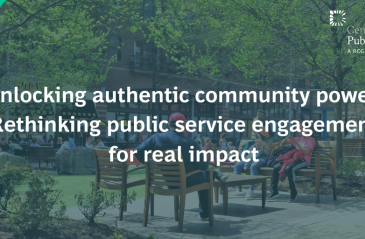
The power of storytelling in climate leadership

.@joannesmithson from @WhatWorksWB shares evidence on how #COVID19 has affected physical & mental health + changes in areas of wellbeing
Share articleLoneliness, job losses & differing health risks between genders = some findings from @WhatWorksWB on the effects of #COVID19 on UK wellbeing
Share article'At this pivotal time for recovery, its vital that gov leaders consider the impact policy dev will have on wellbeing' @joannesmithson
Share articleWe put our vision for government into practice through learning partner projects that align with our values and help reimagine government so that it works for everyone.
If a policy helps people to thrive, it's a success. Covid-19 has highlighted and exacerbated deep inequalities in our society. It has affected many aspects of our wellbeing - our health, our work, our homes, and the quality of our relationships - in ways that have been felt by some much more than others.
At this pivotal time for recovery, thinking and planning in the UK, it is vital that government leaders take into account the impact policy development will have on national, local, and individual wellbeing. Decision makers should be asking - what is necessary to protect the wellbeing of those most affected? And what does ‘good' look like for the UK's future?
Decision makers should be asking - what is necessary to protect the wellbeing of those most affected? And what does ‘good' look like for the UK's future?
But although the whole of the UK has been affected, it is clear that the impact has been different for different people.
As well as looking at the main drivers of wellbeing for informing policy decisions, it is also important for local and national policy makers to understand how and why these drivers of wellbeing/misery might have been compounded or improved for some people.
At the What Works Centre for Wellbeing, we have been collecting and analysing evidence on how different individuals and groups have been affected, and changes that have occurred in all areas of our wellbeing.
As well as the health risks posed by the disease itself, we have also looked at other physical and mental health outcomes, changes to economic circumstances and social and environmental factors. Our evidence draws on official statistics, as well as insights from experts.
In addition to the increased risk from the virus itself, people from ethnic minorities have been more affected by job losses and associated financial impacts, compounding existing economic inequalities.
There is an opportunity now to draw on this growing body of evidence of what works to improve our wellbeing. We can use this evidence to respond to the challenges that lie ahead, while being clear about what a good life looks like, for us all.
We have put our research into an email that can help you construct a wellbeing approach to Covid recovery policies and practices. Get the evidence in your inbox each week - sign up here.












